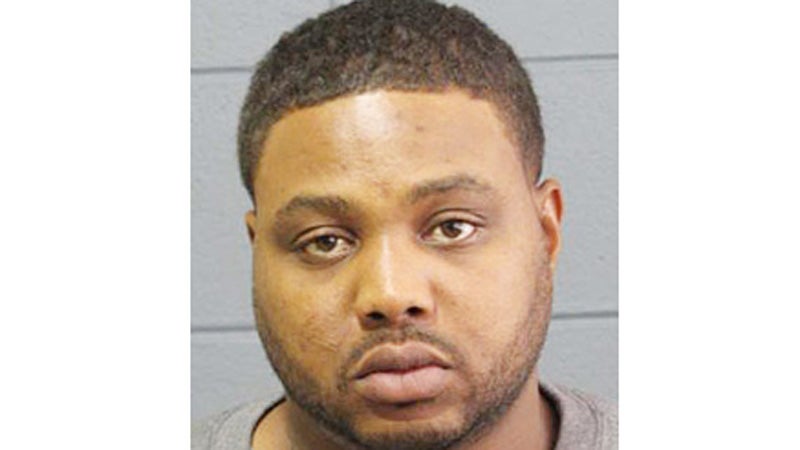Court ruling may alter education for area students
Published 12:00 am Tuesday, July 16, 2002
By RACHEL HARRIS
Louisiana students may see new opportunities in education as area legislators plan to introduce a program similar to Ohio’s Pilot Program, which gives state funding aid to low-income students in failing schools.
This action follows the recent Supreme Court ruling that school voucher programs do not infringe upon the Free Establishment Clause outlined in the First Amendment.
Many conservative legislators and lobbyists support the voucher system, believing a program would increase academic achievement for students in poorly performing schools by allowing them to attend better schools.
State Representative Charles Lancaster, R-Metairie, said he supports school vouchers and plans to co-sponsor legislation on the topic next year. Paul Pastorek of New Orleans, president of the state Board of Elementary and Secondary Education, is another supporter and believes vouchers should be given to poor students stuck in failing schools as an opportunity to advance. He said the recent court ruling will “fuel the fire” behind efforts to allow vouchers.
House Education Committee Chairman Carl Crane, R-Baton Rouge, is a long-time supporter of school vouchers. He said vouchers should be used to help parents get their children out of failing schools and would not be an attack on public schools that are performing well. Crane said a voucher program would be more structured than just handing checks to parents.
The Pilot Program in Ohio began in 1996 in response to 1995 federal court declaration of crises, placing the Cleveland schools under state control. The state took drastic measures to alleviate the situation and began the voucher program with two specific types of financial assistance.
Tuition aid is distributed to parents based on financial need. Families with incomes below 200 percent of the poverty line are given priority and are eligible to receive 90 percent of private school tuition up to $2,250. Parents decide where the tuition aid is spent. If a parent chooses a private school, they endorse a check written to them to the chosen school.
The second type of assistance is tutorial aid, which provides tutoring funds to students who remain in public schools. Parents arrange for registered tutors and then submit the bills to the state for payment. Students from low-income families receive 90 percent of tutoring cost, up to $360. All others receive 75 percent of the amount. Students also have the opportunity to attend other public schools in adjacent districts.
In July 1999, Ohio tax-payers filed action against the voucher program in United States District Court on the ground that it violated the Establishment Clause of the United States Constitution.
The case was argued in the Supreme Court on Feb. 20, 2002. By a 5-4 margin, the court held that the program did not offend the Establishment Clause and therefore was constitutional.
State Superintendent of Education Cecil Picard said, “If school vouchers become a reality in Louisiana, I have to think that every parent would want the reassurance of knowing that every school and every student is held to the same high standards.”
Louisiana Federation of Teachers President Fred Skelton said the public wants the schools fixed, not abandoned.
Those in opposition argue that most private schools’ tuition would not be covered under the state’s financial award, $2,000-$2,500.
Most tuition costs of private schools in the area range above the allotted aid given in Ohio. Riverside Academy in Reserve tuition ranges between $2,650 and $3,100, depending on grade level. Reserve Christian School tuition ranges between $2,150 and $2,350. St. Joan of Arc School tuition is $2,450.
St. Peter Parochial school in Reserve costs about $2,600 principal C.J. Tastet said.
Tastet, a former teacher and principal at East St. John High School said he would like to see a voucher program. There would be an increased enrollment in the private and Catholic sector, he said, but most private schools could not handle a mass influx of students, Tastet said.
“We (public school systems) need to get tougher, get stronger, and do our jobs,” St. John the Baptist Parish School System Superintendent Michael Coburn said, when asked whether or not he favored vouchers.
A father of two children educated in public schools, Coburn said that curriculum to curriculum, the public school system is just as good or better than any private school in the parish.
A representative of Gov. Mike Foster said he supports voucher programs as long as they do not undermine public schools. Currently, the state holds a three-year accountability program which targets poorly-performing students and public schools.
Foster Chief of Staff Andy Kopplin said the right approach will be to evaluate how vouchers could be used as a tool to assist the accountability program instead of substituting one school reform for another.
St. John Superintendent Mike Coburn said he is strongly against the voucher program because it hurts the public school system. He believes strict accountability reports will raise the level of education in the public schools. Teachers are held accountable in St. John Parish, he said, and the answer is not to take funds.
“We need to get tougher, get stronger, and do our jobs,” Coburn said.
A father of two children educated in public schools, Coburn said that curriculum to curriculum, he guarantees the public school system is just as good or better than any school in the parish.





